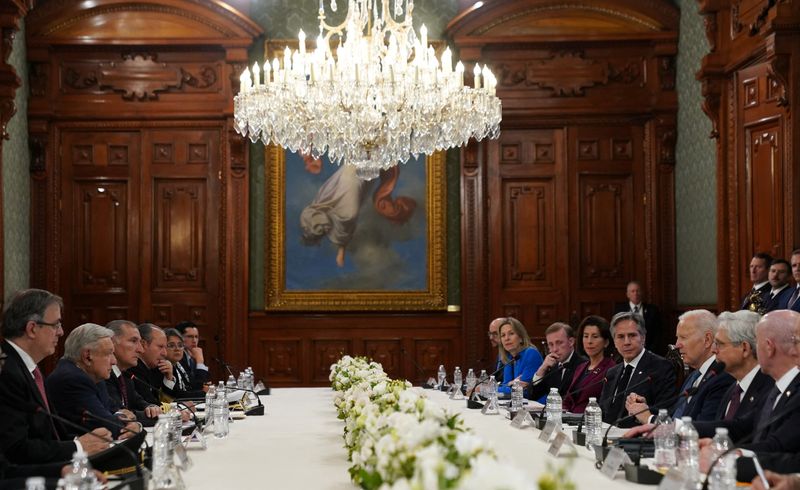Canada and U. S. will develop semiconductor industry
2023.01.10 13:00

Canada and U. S. will develop semiconductor industry
By Tiffany Smith
Budrigannews.com – The White House announced on Tuesday that the North American semiconductor industry will be strengthened by the United States, Mexico, and Canada in an effort to resolve a dispute over Mexico’s energy policy that has enraged investors.
The White House said that North American leaders would hold a semiconductor forum in early 2023 to increase investment in the strategic high-tech industry before a meeting in Mexico City.
The statement says that this would require coordinating semiconductor supply chain mapping to find needs and investment opportunities in chip production for telecom, automotive, and defense applications.
As U.S. President Joe Biden, Mexican President Andres Manuel Lopez Obrador, and Canadian Prime Minister Justin Trudeau prepared for talks, the White House announced that the three governments would also increase cooperation to eradicate drug smuggling and enhance legal pathways for migrants.
Asia has long dominated the semiconductor industry, and the COVID-19 pandemic caused disruptions in North American supply chains.
The energy dispute has undermined Mexico’s chances of benefiting from the push to increase semiconductor output. In July, Washington and Ottawa began formal dispute settlement proceedings against Mexico’s policies.
At the summit, the dispute, which centers on Mexico’s efforts to prioritize its cash-strapped energy companies over private investors, is being closely monitored.
On Monday, Canada brought the issue up once more.
Despite this, Mexican Foreign Minister Marcelo Ebrard suggested that it wouldn’t be a big part of the talks on Tuesday, pointing out that a process for finding a solution was already in progress and that the three leaders didn’t want the summit to become a dispute panel.
He said on Mexican radio, “I wouldn’t imagine it’s a major issue in today’s summit,” noting that Trudeau was likely to bring up the topic in separate talks with Lopez Obrador on Wednesday.
Policy analysts contend that Washington is frequently reluctant to allow other issues to compel dealings on migration. The Biden administration has focused much of its attention with Mexico on containing illegal crossings at the southern U.S. border.
During a meeting with Mexican Economy Minister Raquel Buenrostro on Monday, Canadian International Trade Minister Mary Ng expressed concerns regarding Mexico’s energy policies and their potential impact on Canadian investments.
Ng expressed concerns regarding the treatment of Canadian mining companies in Mexico and stated that it was essential to find a “mutually acceptable resolution” to the dispute.
Following their discussions at the National Palace in Mexico City, the three leaders will issue public statements.
On Tuesday morning, Biden and Trudeau were scheduled to meet. Biden stated in public remarks that they would talk about the push toward renewable energy as that started.
He stated to Trudeau, “We should be the clean energy powerhouse in the world.”
“Strengthening our supply chains so that no one can arbitrarily hold us up” was another point that Biden emphasized.
According to the White House, the U.S. President met Lopez Obrador on Monday and talked about ways to reduce illegal migration, fight the drug trade, and strengthen economic ties.
The White House stated that as part of the North American Drug Dialogue (NADD), the three nations would adopt an “updated strategic framework” to address the dangers posed by illegal drugs.
This would include sharing more information about the chemicals that are used to make drugs, like fentanyl, a synthetic opioid that has been linked to thousands of overdose deaths in the US.
According to the White House, the three have also pledged to reduce methane emissions from wastewater and solid waste by at least 15% by 2030, compared to levels in 2020.
It said that they would also create a virtual platform to make it less likely that migrants would rely on smugglers and provide them with simplified access to legal entry routes into Canada, the United States, and Mexico.
More France’s economic problems force raising retirement age to 64








